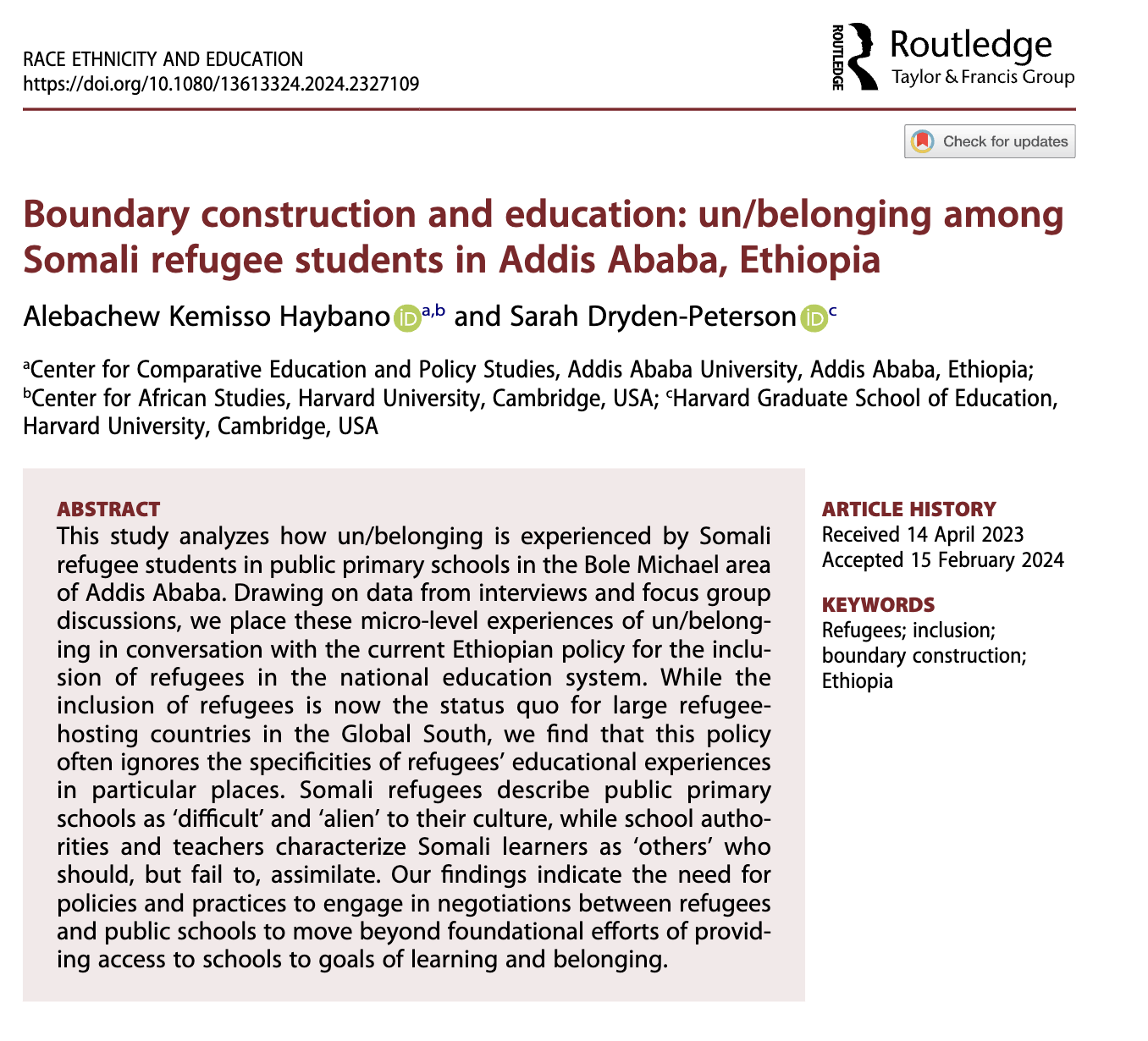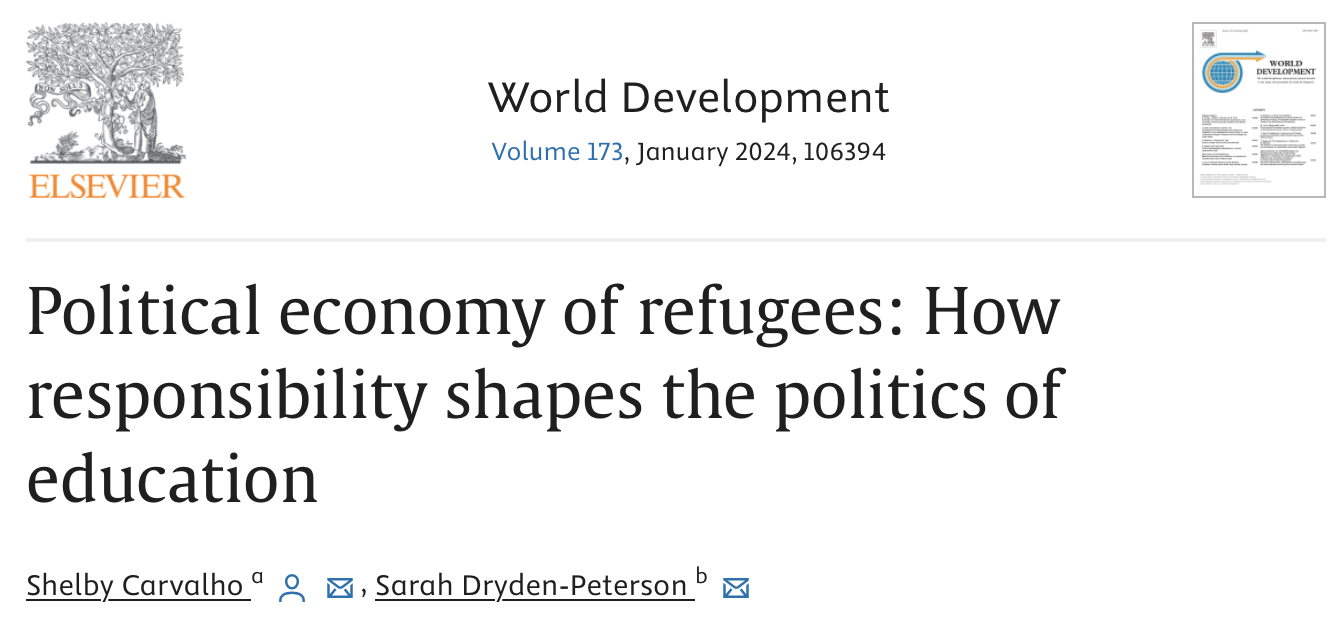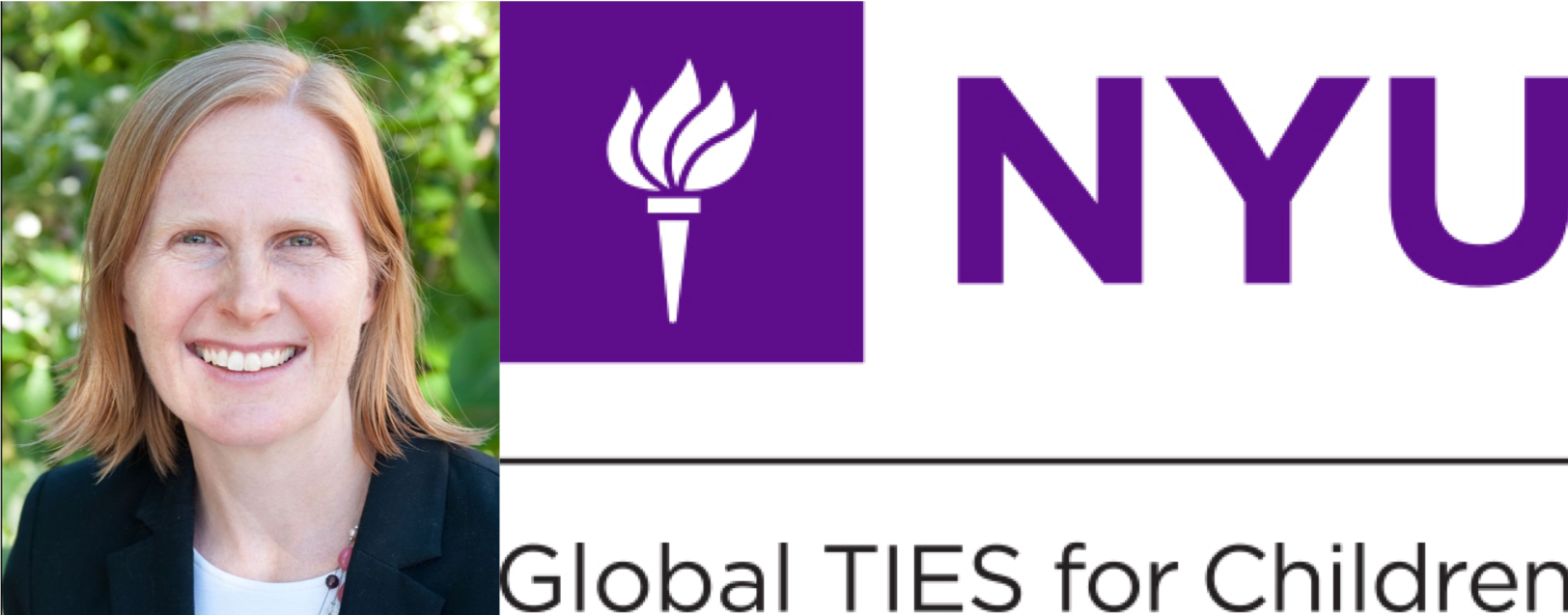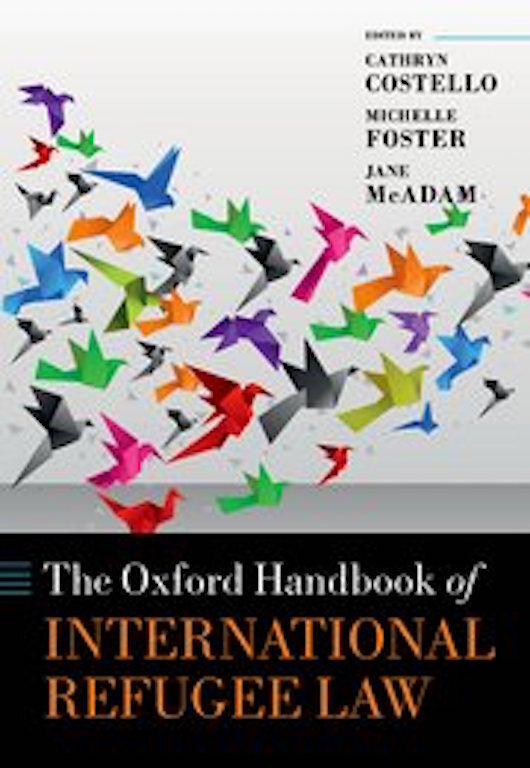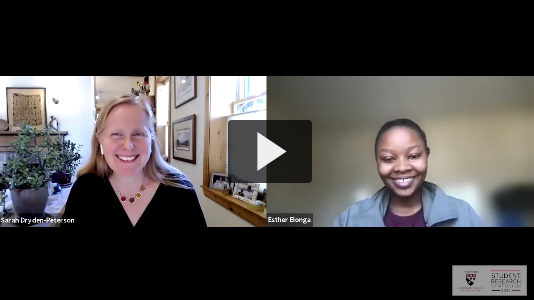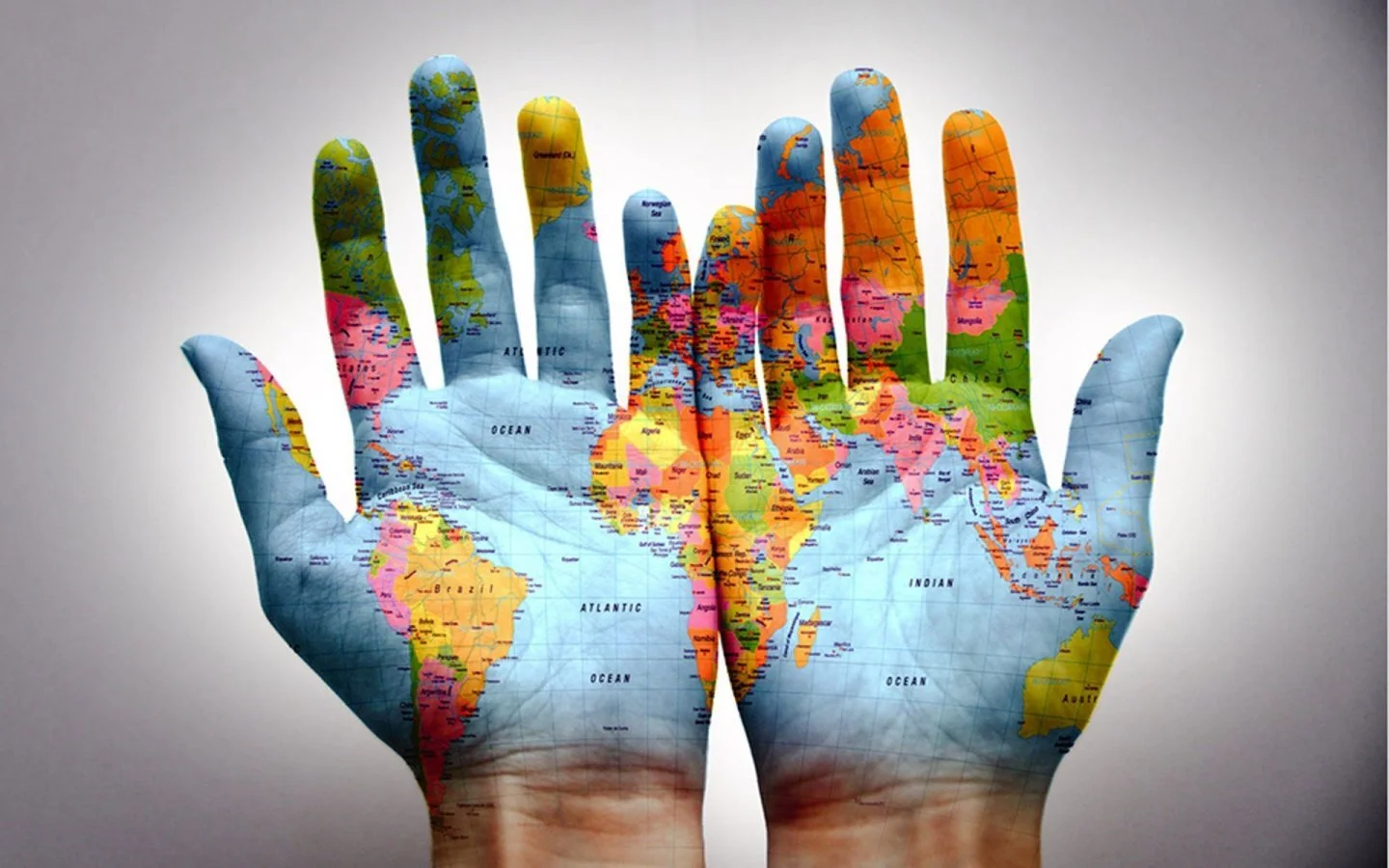Research | This article examines why and how teachers of refugees enact protection by engaging with local forms of harm facing their refugee students. Through portraits of two classrooms in Jordan, we describe the relationships that form between Jordanian teachers and Syrian students, and the protection practices teachers develop in response. We propose a more comprehensive conceptualization of protection in refugee education that layers socio-political protection on legal and rights-based protection commonly embedded in humanitarian activities.
Read MoreArticle | Refugee REACH director Sarah Dryden-Peterson examines lessons from the field of refugee education for times of uncertainty, including current and future pandemics. She outlines three elements of “pedagogies of belonging:” pedagogies of predictability, adaptability, and future-building.
Read MoreArticle | There is a gap between the futures that refugee young people imagine will be possible through their education and the plausible futures in exile, where opportunities are truncated by social, economic, and political exclusions. Our study examines how education can narrow this gap. Through interviews with Syrian students in Lebanon, we document fixed and malleable elements of education that refugee students identify as bridging their current education and their futures. Students experience the structures and content of schooling in Lebanon as both exclusionary and immutable, yet their teachers use what we call relational pedagogies rooted in predictability, explaining, fairness, and care to support students’ learning and navigation toward future opportunities.
Read MoreArticle | Limitations on membership and participation in host societies sharply constrain refugee young people’s civic development. Especially when refugees attend national schools, they find themselves submerged in civic learning that does not include them or represent their experiences and realities. To explore possibilities for civic learning among refugees, we examine the education created by a Syrian community inside the structures of a Lebanese private school in Beirut. We conceive of this school as a ‘borderlands’ and find that it supports civic membership and participation in three ways: through adaptations to the Lebanese structures, curricula, and languages of schooling; through pedagogies focused on pragmatism; and through opening limited spaces for students to practice civic skills. We argue that the borderlands space created by this school holds lessons for both refugee and national teachers and school systems seeking to foster civic learning among refugees.
Read MoreArticle | Education is one of the key tools of nation-building, as it aims to create future citizens. Yet what happens in seemingly ‘futureless’ contexts where refugees cannot access even social membership, let alone legal citizenship? In this introduction to our special issue on education for refugees, we explore the aspirations and conceptions of possible futures that students, teachers, governments, international non-governmental organizations (INGOs), and funders have when they promote and pursue education as the solution to the liminal position that refugees in protracted refugee situations find themselves in. Based on insights from the articles, we analyse disconnects between aspirations for education and realities of access to quality education and to opportunities after completing education. We argue that to address these disconnects requires us to move beyond temporal and spatial binaries—present vs. future, here vs. there—that are so common in refugee education discourse and policy. Our suggestion is to draw on and support stakeholders’ work, powerfully exemplified in this special issue, to contribute to improved conditions through pedagogies, practices, and policies that address these binaries.
Read MoreArticle | This study analyzes how un/belonging is experienced by Somali refugee students in public primary schools in the Bole Michael area of Addis Ababa. Drawing on data from interviews and focus group discussions, we place these micro-level experiences of un/belonging in conversation with the current Ethiopian policy for the inclusion of refugees in the national education system. While the inclusion of refugees is now the status quo for large refugee-hosting countries in the Global South, we find that this policy often ignores the specificities of refugees’ educational experiences in particular places. Somali refugees describe public primary schools as ‘difficult’ and ‘alien’ to their culture, while school authorities and teachers characterize Somali learners as ‘others’ who should, but fail to, assimilate. Our findings indicate the need for policies and practices to engage in negotiations between refugees and public schools to move beyond foundational efforts of providing access to schools to goals of learning and belonging.
Read MoreResearch | The political economy for refugees can be understood as distinct from the political economy for citizens as it requires addressing fundamental questions of responsibility and assumptions about time horizons. This is particularly true in education, which is by nature a long-term engagement and investment and for which responsibility is presumed to lie with governments. As host countries and the global community grapple with decisions about how to provide refugee education, it is critical to understand how the political economy for refugees and for citizens may differ to ensure that approaches are equitable and effective for refugees and host communities.
Read MoreVideo | Refugee REACH director Sarah Dryden-Peterson delivers a lecture titled Refugee Education: Power, Purposes, and Pedagogies Across Contexts, hosted by NYU’s Global TIES for Children.
Read MoreInterview | Elisabeth King and Cyrus Samii spoke with REACH team member Laura Cesaro about their new book and the implications of their findings for policymakers and schools as they seek to create conditions for peace in contexts of conflict and ethnic diversity.
Read MoreArticle | Refugee REACH director Sarah Dryden-Peterson discusses two mobilities that emerge through her team’s work on refugee education: cognitive mobility and temporal mobility. These have broad relevance for what, how, and why children and young people learn, including as related to language in education.
Read MoreVideo | Researchers from the Peace Research Institute Oslo and Harvard University teamed up with PositiveNegatives to convey the narratives of refugee students and teachers in the Dadaab refugee camps of Kenya.
Read MoreBook chapter | Refugee REACH director Sarah Dryden-Peterson and affiliate Hania Mariën jointly contributed a book chapter in The Oxford Handbook of International Refugee Law, focusing on the right to education.
Read MoreVideo | REACH co-founder Vidur Chopra of Teachers College presents his research, together with Helen Haste, during a two-part webinar series on UNESCO’s Futures of Education Initiative.
Read MoreVideo | Refugee REACH director Sarah Dryden-Peterson and students Esther Elonga, Martha Franco, Orelia Jonathan, and Kristia Wantchekon discuss how experiences of uncertainty affect the research design process amid multiple pandemics of Covid-19 and racism.
Read MoreVideo | Sarah Dryden-Peterson and Celia Reddick of HGSE present their research findings during the virtual Language and Migration symposium, hosted by the Princeton Institute for International and Regional Studies.
Read More




